
Poverty Reduction Strategy Papers (PRSPs) are prepared by member countries in broad consultation with stakeholders and development partners, including the staffs of the World Bank and the IMF.
The following is a list of all conten labeled as "Health & Health Facilities"

Poverty Reduction Strategy Papers (PRSPs) are prepared by member countries in broad consultation with stakeholders and development partners, including the staffs of the World Bank and the IMF.

The overall objective of the contingency plan is to support the Comorian government in order to set up a real-time and coordinated response in order to minimize the humanitarian consequences of disasters on the populations.
The following strategic objectives constitute the basic interventions planned under this contingency plan:
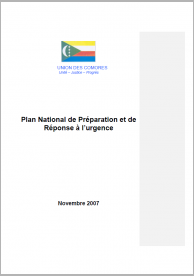
Provides national authorities and partners with a reference tool to better prepare and manage emergency situations.

Poverty Reduction Strategy Papers (PRSPs) are prepared by member countries in broad consultation with stakeholders and development partners, including the staffs of the World Bank and the IMF.
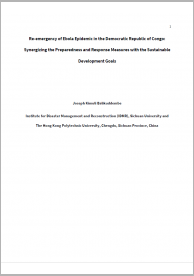
Ebola outbreaks which have re-emerged in the Democratic Republic Congo (DRC) have continued to galvanize the regional and global attention. The outbreaks are likely to transcend borders and threaten the global health crisis, especially by ensuring the “healthy lives and to promote the well-being for all at all ages” which is grounded in the sustainable development goals (SDGs).

Poverty Reduction Strategy Papers (PRSPs) are prepared by member countries in broad consultation with stakeholders and development partners, including the staffs of the World Bank and the IMF.
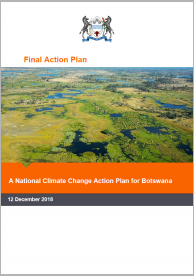
This action plan serves as a companion document to the Botswana National Climate Change Strategy of 2018. It provides a clear pathway for the implementation and monitoring of the strategy by providing targets and indicators for each strategy.
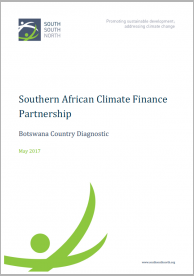
The Southern Africa Climate Finance Partnership (SACFP) seeks to develop a regional partnership between six countries (Botswana, Lesotho, Namibia, South Africa, Zambia and Zimbabwe) to support country-owned and managed climate finance portfolios that can be financed through the Green Climate Fund (GCF) and other climate finance avenues, and mobilise private investment where possible.
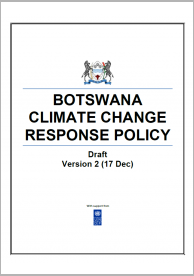
The goal of this policy is to mainstream sustainability and climate change into development planning and in so doing, enhance Botswana’s resilience and capacity to respond to existing and anticipated climate change impacts.

The eleventh National Development Plan (NDP 11) is the first medium-term plan towards the implementation of the country’s second vision - Vision 2036. The Plan will run from 1st April 2017 to 31st March 2023.